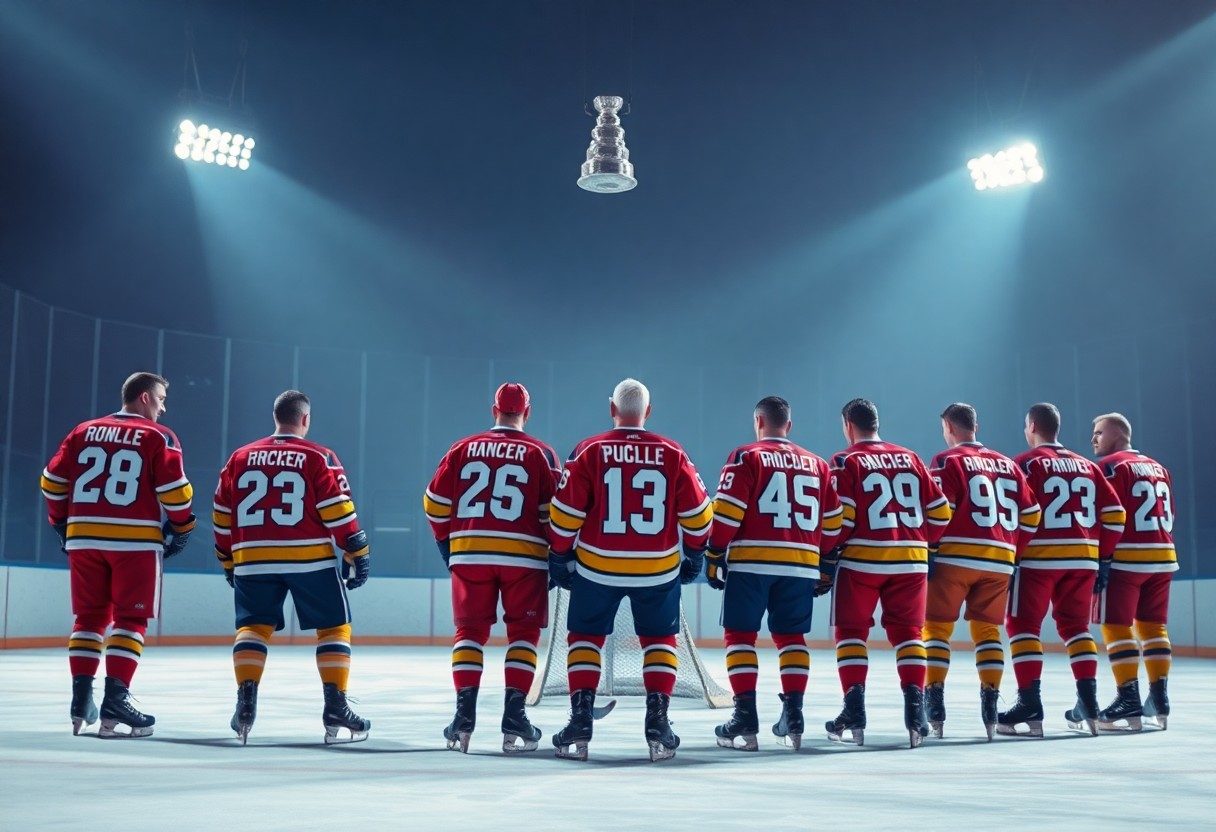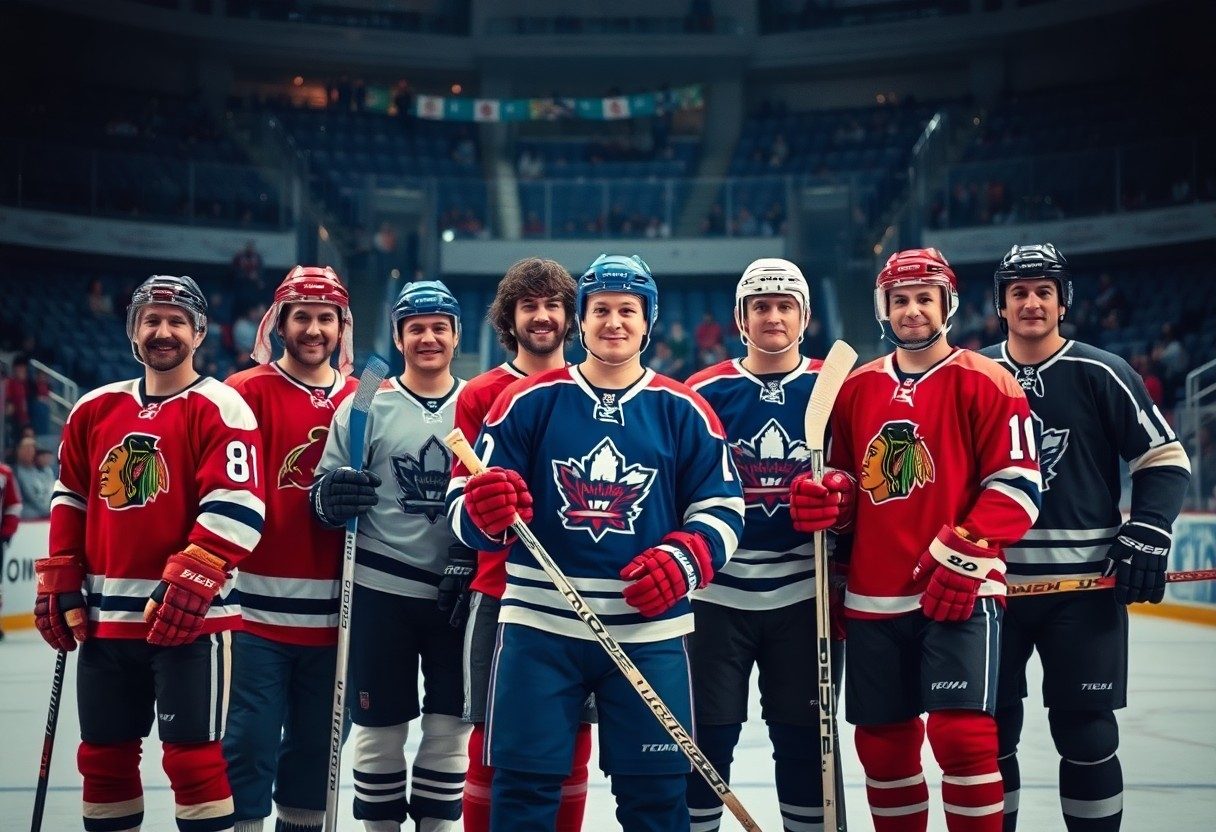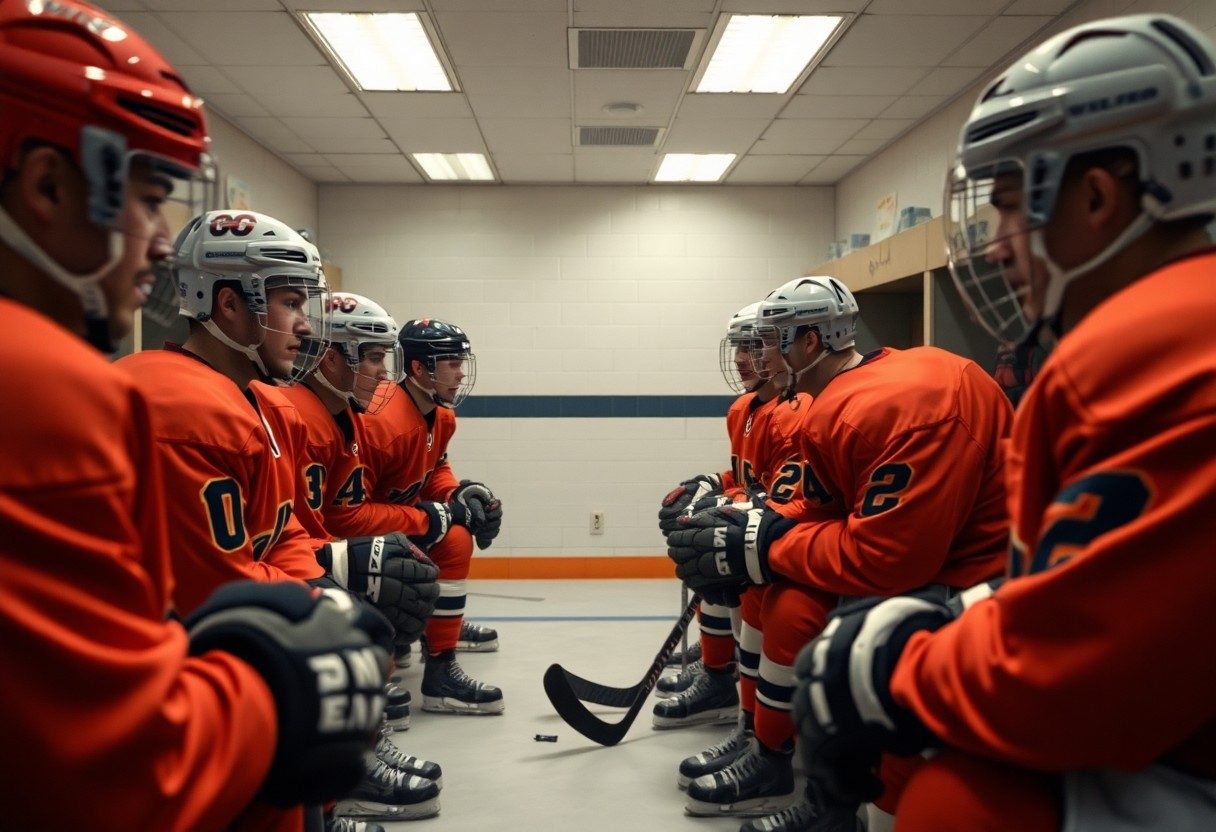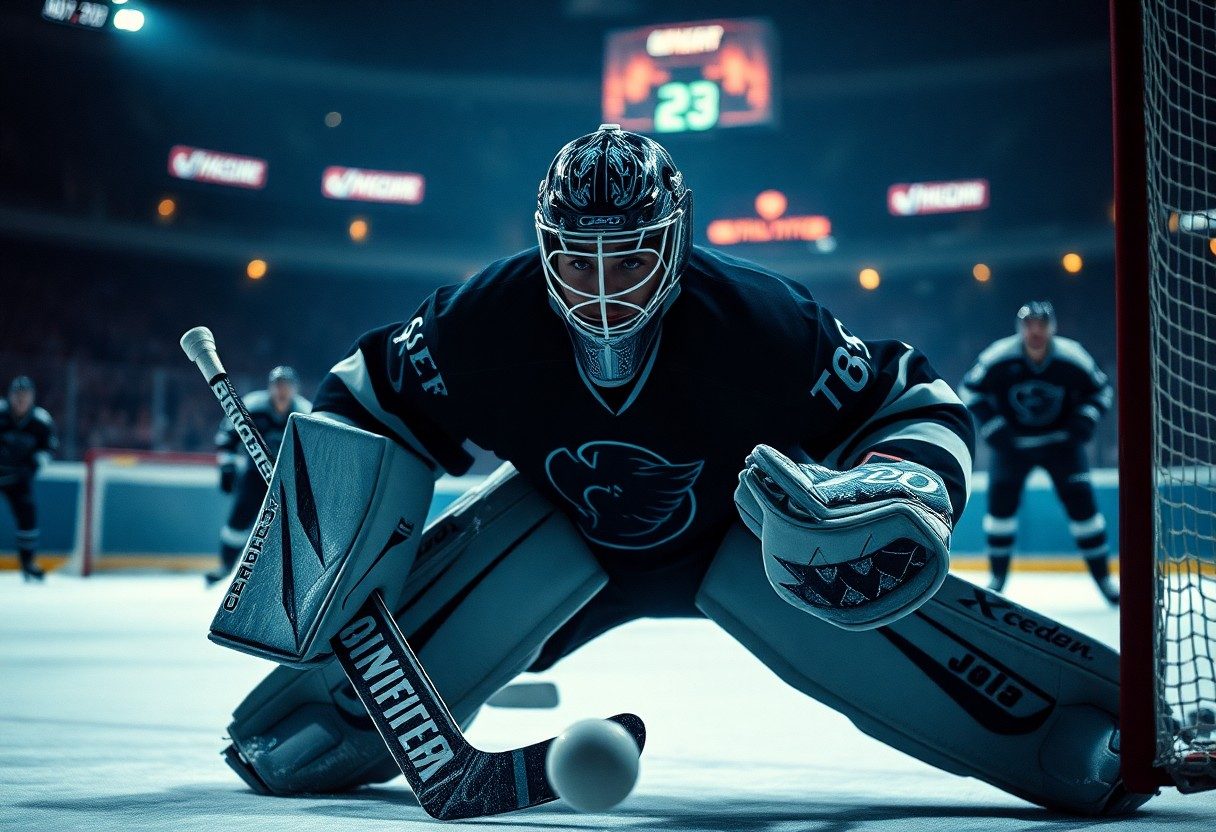Just imagine dedicating your entire career to hockey’s highest achievement, only to fall short of the ultimate prize. You’ll discover that some of the sport’s most legendary players never experienced the joy of hoisting the Stanley Cup above their heads. These exceptional athletes dominated the ice with remarkable skill and dedication, yet the championship remained frustratingly elusive throughout their careers. Your understanding of hockey greatness will deepen as you explore the careers of these talented individuals who, despite their outstanding individual accomplishments, faced the harsh reality that team success doesn’t always align with personal excellence in professional sports.
Legends of the Game: Iconic Players Who Fell Short
You’ll find some of hockey’s most talented players among those who never hoisted the Stanley Cup. These legends dominated individual statistics, earned multiple awards, and captivated fans worldwide, yet the ultimate prize remained elusive. Their stories reveal how team success and individual brilliance don’t always align, creating compelling narratives of what might have been. Despite missing hockey’s holy grail, these players left indelible marks on the sport through their skill, determination, and unforgettable performances that transcended championship hardware.
The Intriguing Story of Marcel Dionne
Marcel Dionne’s career reads like a masterclass in offensive excellence, yet his 1,771 career points couldn’t secure him a single Stanley Cup. You might be surprised to learn that Dionne finished as the NHL’s second-highest scorer when he retired, trailing only Wayne Gretzky. Playing primarily for Detroit and Los Angeles during the 1970s and 1980s, Dionne consistently performed at an elite level on teams that struggled to build championship-caliber rosters around him. His closest opportunity came with Montreal in his final season, but even joining the Canadiens couldn’t deliver the elusive championship.
How Phil Housley Never Reached the Pinnacle
Phil Housley stands as the highest-scoring defenseman to never win a Stanley Cup, accumulating 1,232 career points across 21 NHL seasons. You’d expect a player of his caliber to have captured at least one championship during his extensive career with eight different franchises. Housley’s dynamic offensive abilities revolutionized the defenseman position, yet he consistently found himself on teams that fell short when it mattered most.
Your appreciation for Housley’s predicament deepens when you examine his playoff near-misses throughout the 1990s and early 2000s. His Buffalo Sabres reached the Stanley Cup Finals in 1999, losing to Dallas in six games in what became one of the most controversial championship series ever played. Later in his career, you’d witness Housley chase the Cup with Calgary, New Jersey, and Toronto, but injuries, timing, and circumstance conspired against him. Despite playing 1,495 regular season games and 100 playoff contests, the championship that seemed inevitable for such a gifted player never materialized, making his Hall of Fame induction bittersweet.
The Heartbreak and Triumph: Players Who Came Close
You’ve witnessed countless playoff runs where exceptional players carried their teams to the brink of glory, only to watch their dreams slip away in the final moments. These near-misses often define careers more than regular season accolades, creating lasting legacies built on what could have been. When you examine the players who came tantalizingly close to Cup victory, you discover stories of individual brilliance overshadowed by team shortcomings, devastating injuries at crucial moments, and the cruel mathematics of playoff hockey where one goal can separate legends from footnotes.
The Near-Misses of Pavel Bure
You can trace Pavel Bure’s closest Cup opportunity to the 1994 Stanley Cup Finals, where his Vancouver Canucks pushed the New York Rangers to seven games. Bure’s electrifying speed and 31 playoff points that year weren’t enough to overcome Mark Messier’s guarantee and the Rangers’ 54-year drought narrative. His later years with Florida saw playoff appearances, but you’ll find that knee injuries and weaker supporting casts prevented the “Russian Rocket” from ever returning to hockey’s biggest stage, leaving one of the most dynamic scorers in NHL history without the ultimate prize.
The Drama of Vincent Lecavalier’s Career
You witnessed Vincent Lecavalier’s heartbreaking journey through multiple deep playoff runs with Tampa Bay, most notably the 2004 Cup Finals where his Lightning fell to Calgary in seven games. Despite posting 16 points in 23 playoff games that year, Lecavalier watched as Brad Richards captured the Conn Smythe Trophy while the Cup slipped away in a series that featured some of the most dramatic overtime hockey you’ll ever see.
Lecavalier’s career trajectory perfectly illustrates how timing and circumstances conspire against even the most talented players. You saw him develop into Tampa Bay’s franchise cornerstone, earning the captaincy at just 19 years old and becoming the first overall pick who lived up to enormous expectations. His 2006-07 season produced 52 goals and 108 points, establishing him among the elite centers in the game. However, you watched as Tampa Bay’s supporting cast deteriorated around him, and by the time the Lightning rebuilt into contenders again, Lecavalier’s prime years had passed. His later stint with Philadelphia represented a final chance, but age and declining speed meant you were watching a shadow of the player who once terrorized goaltenders with his lethal shot and playmaking ability.
Unsung Heroes: Dominant Talents Overlooked
You’ll find some of the most heartbreaking Stanley Cup stories among players whose brilliance never quite translated to championship glory. These athletes dominated their respective eras, yet somehow slipped through the cracks of hockey history without lifting the Cup. Their individual achievements often overshadowed entire franchises, but team success remained elusive despite their extraordinary contributions to the game.
The Skill and Grace of Saku Koivu
You witnessed pure artistry when Saku Koivu controlled the ice for Montreal. His 1,124 career points across 18 NHL seasons showcased remarkable consistency and vision that made teammates better players. Koivu’s leadership during his cancer battle in 2001-02 demonstrated character that transcended hockey, yet his closest Cup appearance came in 2010 with Anaheim, falling in the first round despite his playoff experience and clutch performances.
The Tenacity of Jeremy Roenick
You couldn’t ignore Jeremy Roenick’s explosive presence on any team he joined. His 513 career goals and 703 assists reflected a player who combined skill with an unmatched competitive fire that elevated every lineup.
Roenick’s career embodied the frustration of individual excellence without team success. He reached the Stanley Cup Final twice – with Chicago in 1992 and Philadelphia in 2010 – but watched both opportunities slip away despite his heroic efforts. Your appreciation for his game grows when considering his versatility: Roenick excelled at center and wing, dominated power plays, and never backed down from physical confrontations. His 154 playoff points in 154 games proved he elevated his performance when stakes were highest, yet the Cup remained tantalizingly out of reach throughout his 20-year career.
The Impact of Team Dynamics: Beyond Individual Skill
You might assume that elite talent automatically translates to championship success, but hockey’s history reveals a different reality. Individual brilliance rarely overcomes systemic team weaknesses in a sport where 20 players must function as a cohesive unit across four lines and three defensive pairings. Consider how Marcel Dionne’s 1,771 career points couldn’t compensate for the Los Angeles Kings’ organizational struggles throughout the 1970s and 1980s. When you examine championship teams, you’ll notice they typically feature multiple All-Stars, deep defensive cores, and goaltenders who elevate their play during playoff runs—elements that transcend any single player’s capabilities.
The Role of Supporting Casts in Championship Success
Championship teams consistently feature 15-18 contributors rather than relying on superstar-driven offense. You can trace this pattern through recent Cup winners: the 2019 Blues deployed four productive lines during their playoff run, while the 2020 Lightning balanced Steven Stamkos’s injury absence with contributions from players like Brayden Point and Victor Hedman. When you compare this to players like Eric Lindros, whose Philadelphia Flyers lacked consistent secondary scoring and defensive depth, the contrast becomes stark. Supporting casts provide the defensive reliability and depth scoring that superstars simply cannot generate alone.
Analyzing the “Curse” of Great Players on Average Teams
Exceptional players often find themselves trapped on franchises that prioritize individual talent over roster construction. Teams frequently build around one superstar while neglecting complementary pieces, creating a cycle where the star’s salary demands limit financial flexibility for supporting players. You see this pattern with players like Rick Nash, whose Columbus Blue Jackets never assembled adequate goaltending or defensive depth despite his consistent 40-goal seasons.
This phenomenon extends beyond salary cap constraints to organizational philosophy and management competence. When you examine the careers of players like Daniel and Henrik Sedin, their Vancouver Canucks consistently invested in skill players while struggling to develop the physical, defensive-minded depth that playoff hockey demands. The organization’s focus on regular season success through offensive creativity left them vulnerable to grittier, more balanced opponents during deep playoff runs. Similarly, you’ll notice how the Buffalo Sabres wasted prime years of players like Pat LaFontaine and Alexander Mogilny by failing to address fundamental weaknesses in goal and on defense. These franchises often mistake individual excellence for team building, creating rosters that dominate weaker opponents but crumble under playoff pressure when facing teams with superior depth and defensive structure.
Reflection on Legacy: How Lack of a Cup Shapes a Career
Your perception of greatness fundamentally shifts when you examine players whose careers are forever marked by championship absence. Marcel Dionne’s 1,771 career points become overshadowed by his zero Stanley Cup appearances, while Jarome Iginla’s leadership and 625 goals are perpetually measured against his inability to capture hockey’s ultimate prize. You witness how the narrative around these legends transforms from celebrating individual excellence to questioning what might have been, creating a complex legacy where statistical dominance coexists with an unfillable void.
The Psychological Toll of the Pursuit
You can observe the mounting pressure in players’ later career decisions as Cup windows narrow. Marian Hossa’s desperate trades to Detroit and Pittsburgh before finally winning with Chicago exemplify how the pursuit consumes rational thinking. Ray Bourque’s emotional breakdown after winning with Colorado in 2001 revealed decades of accumulated psychological weight. Your understanding deepens when you consider how players like Eric Lindros watched prime years slip away while battling injuries, knowing each lost season diminished their championship chances exponentially.
Resilience and Redemption in Post-Career Narratives
Your appreciation grows when you see how players reframe their legacies beyond championship hardware. Dale Hawerchuk’s transition to junior coaching allowed him to mentor future stars, while Henrik Lundqvist’s grace in retirement speeches focused on relationships built rather than trophies missed. These narratives demonstrate how greatness transcends singular achievements, with players finding purpose in development roles, broadcasting, and community impact that extends far beyond their playing careers.
Post-retirement redemption stories reveal the most compelling character development you’ll find in sports. Pat LaFontaine channeled his Cup-less career into founding concussion research initiatives, transforming personal disappointment into medical advancement that protects future generations. You discover how players like Alexander Mogilny embrace their role as ambassadors for international hockey development, using their unfulfilled NHL dreams to inspire youth programs across Europe. Their coaching trees often produce more lasting impact than championship banners—Hawerchuk alone developed Connor McDavid and Nathan MacKinnon during his junior coaching tenure. These second-act narratives prove that your legacy isn’t confined to what you didn’t achieve, but rather how you leverage your experience to elevate others, creating ripple effects that extend decades beyond your final game.
Final Words
On the whole, you can see that individual brilliance doesn’t always translate to team success in hockey. When you examine players like Marcel Dionne, Eric Lindros, and Jarome Iginla, you witness extraordinary talent that captivated fans yet fell short of the ultimate prize. Your understanding of hockey greatness should encompass both personal achievements and team accomplishments, recognizing that the Stanley Cup requires perfect timing, exceptional teammates, and often a bit of luck. These players prove that your legacy isn’t solely defined by championships, but by the impact you make on the game itself.













